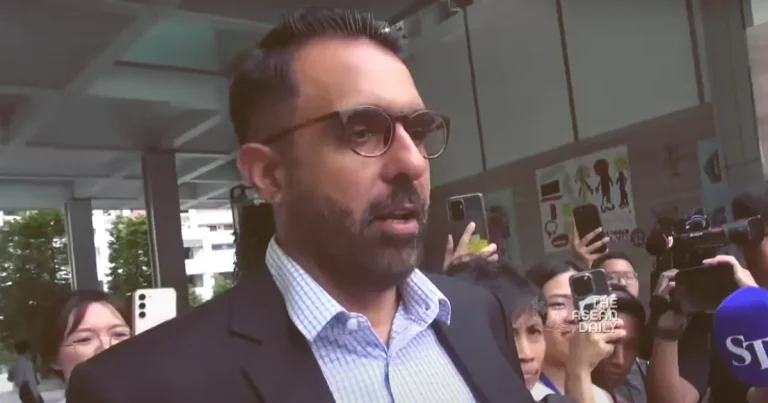20-3-2024 (SINGAPORE) Legal experts and political observers have stated that Pritam Singh, the Leader of the Opposition, is unlikely to lose his parliamentary seat as a result of his ongoing criminal case. However, they acknowledge that there may be an impact on voter sentiment during future elections.
Singh, who is the chief of the Workers’ Party, was charged in court on March 19 with two counts of lying to a parliamentary committee. The charges have sparked speculation about his political future.
Under the Parliament (Privileges, Immunities and Powers) Act, the offences carry a maximum fine of $7,000 and a jail term of up to three years, or both. Some have questioned whether a conviction would lead to Singh losing his seat in Aljunied.
Legal experts consulted by The Straits Times have expressed doubt that Singh would be disqualified. Singh is unlikely to face imprisonment, as confirmed by the Attorney-General’s Chambers (AGC), which stated that a custodial sentence would not be sought if he is convicted. Instead, a fine would be proposed for both charges.
Experts have pointed out that the Constitution refers to a single offence, not separate offences, in relation to disqualification from Parliament. Even if Singh were to receive the maximum fine for each charge, it would not meet the threshold for disqualification.
Constitutional law expert Kevin Tan explained that the purpose of the $10,000 threshold is to indicate the seriousness of an offence that would render an MP unfit for office. Therefore, cumulative offences with lower fines should not trigger disqualification.
Eugene Tan, an Associate Professor of Law at Singapore Management University (SMU), agreed, stating that interpreting the Constitution to allow stacking fines for different offences would be a strained reading. He emphasized that there is no real risk of Singh being disqualified as an MP or from running in an election.
However, Benjamin Joshua Ong, an Assistant Professor of Law at SMU, noted that the court is not bound by the prosecution’s arguments and can decide on a higher or lower sentence, including imprisonment. The charges, which involve lying, could potentially damage Singh’s and the Workers’ Party’s reputation.
The outcome of the case could impact the party’s campaign efforts and arguments in Parliament. As the leader of the Workers’ Party, any fallout for Singh would also affect the party as a whole during electoral battles.
Gillian Koh, a senior research fellow at the Institute of Policy Studies, suggested that the case may not necessarily lead to a decline in support for the Workers’ Party. She cited previous instances, such as the Aljunied-Hougang Town Council case, where the party prevailed despite adverse conditions.
However, Koh acknowledged that the case could raise doubts among voters in constituencies where the Workers’ Party aims to expand. This includes concerns about the party’s ability to manage its affairs and the reliability of its leaders and candidates.
The case is also expected to test the Workers’ Party’s party discipline and coherence, particularly in light of the Raeesah Khan controversy. Dr. Koh noted that Singh’s testimony in court may challenge the trust and support of party members, especially if it contradicts Khan’s claims about his advice.
The charges against Singh stem from his testimony before Parliament’s Committee of Privileges, which was convened to investigate Khan’s lies in the House on August 3 and October 4, 2021. The crux of the matter is Singh’s assertion that he had asked Khan to clarify her lies in Parliament, while she alleged that he had instructed her to maintain the falsehood.




